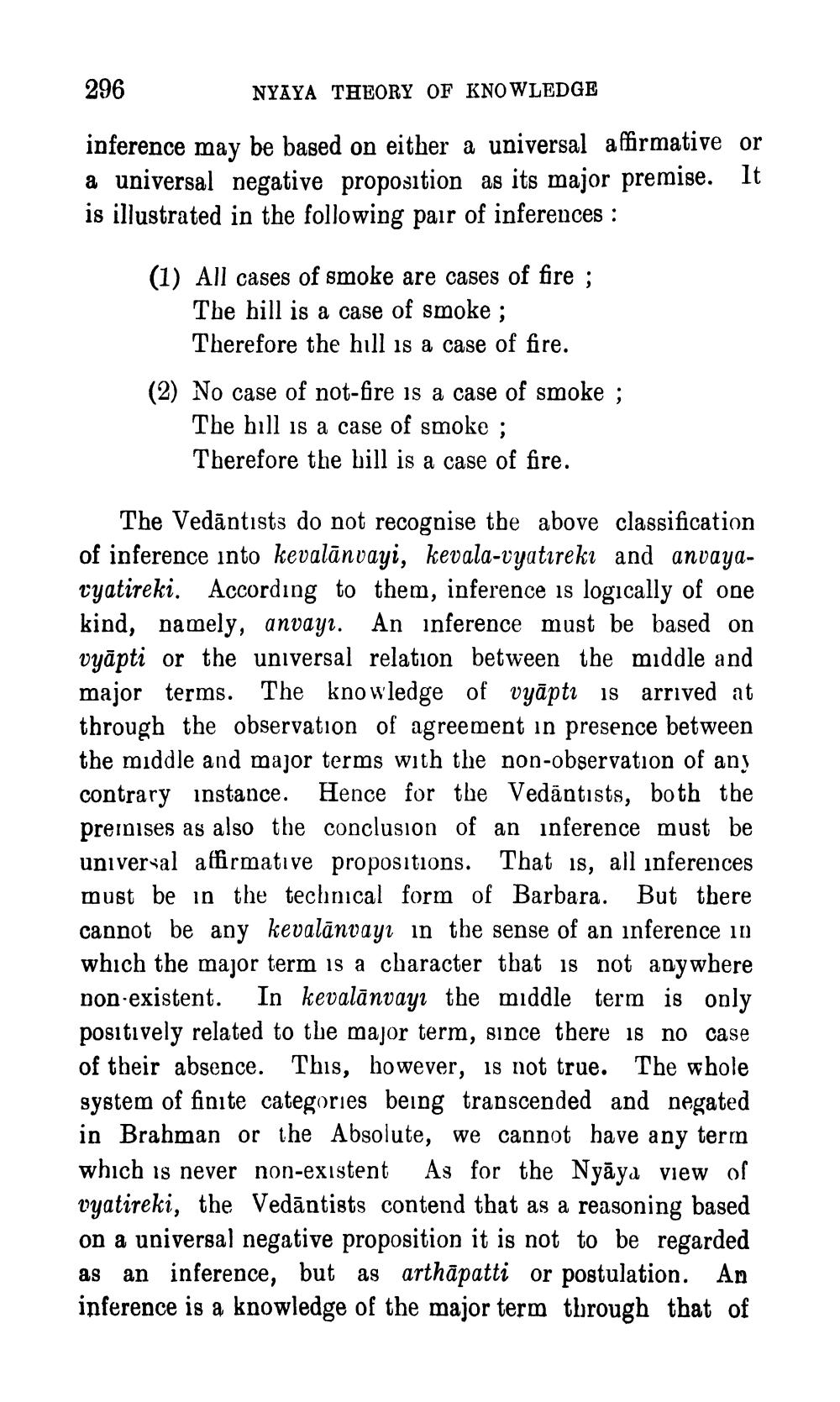________________
296
NYAYA THEORY OF KNOWLEDGE
inference may be based on either a universal affirmative or a universal negative proposition as its major premise. It is illustrated in the following pair of inferences:
(1) All cases of smoke are cases of fire; The hill is a case of smoke;
Therefore the hill is a case of fire.
(2) No case of not-fire is a case of smoke ; The hill is a case of smoke;
Therefore the hill is a case of fire.
The Vedantists do not recognise the above classification of inference into kevalānvayi, kevala-vyatıreki and anvayavyatireki. According to them, inference is logically of one kind, namely, anvayi. An inference must be based on vyapti or the universal relation between the middle and major terms. The knowledge of vyapti is arrived at through the observation of agreement in presence between the middle and major terms with the non-observation of any contrary instance. Hence for the Vedantists, both the premises as also the conclusion of an inference must be universal affirmative propositions. That is, all inferences must be in the technical form of Barbara. But there cannot be any kevalānvay in the sense of an inference in which the major term is a character that is not anywhere non-existent. In kevalanvayı the middle term is only positively related to the major term, since there is no case of their absence. This, however, is not true. The whole system of finite categories being transcended and negated in Brahman or the Absolute, we cannot have any term which is never non-existent As for the Nyaya view of vyatireki, the Vedantists contend that as a reasoning based on a universal negative proposition it is not to be regarded as an inference, but as arthāpatti or postulation. An inference is a knowledge of the major term through that of




